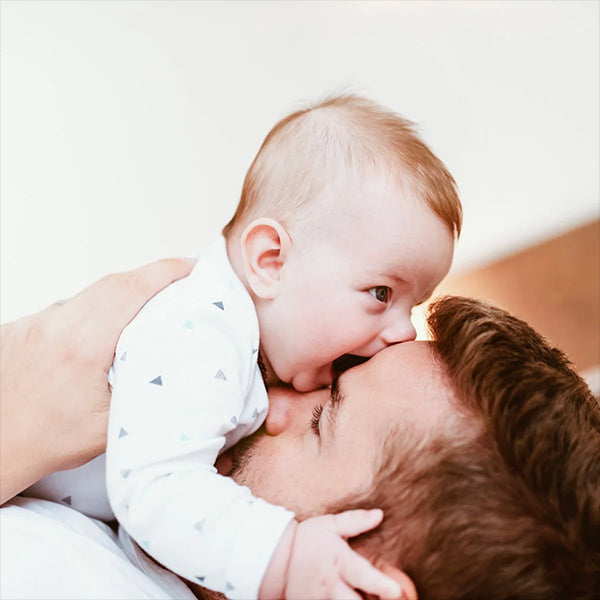Organic, natural, and transparent care
All our products are made in France or Europe with natural ingredients
More than 199,999 families trust us ❤️
Language: US
Products
Content
0 results
Organic, natural, and transparent care
All our products are made in France or Europe with natural ingredients
More than 199,999 families trust us ❤️
Language: US
Products
Content
0 results

Maybe you’ve experienced it firsthand during the last feeding, or perhaps the daycare staff mentioned it this evening, your baby is starting to bite!
Babies bite for various reasons, depending on their age, and in most cases, it’s an impulsive reaction rather than an intentional act. So why do babies bite? And how should you respond? Let’s break it down.
First and foremost, know that babies (and even older children) do not bite to intentionally cause harm. Their brains are not yet mature enough to fully grasp the consequences of their actions.
- Between 3 and 12 months – Biting is often linked to teething pain. Babies instinctively bite to relieve discomfort—something you’ll definitely notice if you’re still breastfeeding!
- Between 12 and 18 months – At this stage, biting can be triggered by strong emotions. Babies may feel overwhelmed by joy, love, frustration, or stress and express these feelings through biting.
- Around age 3 and beyond – Biting can be a response to anger, jealousy, or self-defense. However, children this age don’t yet understand their strength, so injuries remain unintentional.
The key is to address the behavior immediately—not later in the day. If you bring it up hours after the incident, your child will struggle to connect your reaction to their action.
- Stay calm – Raising your voice or making threats may increase stress and actually encourage more biting.
- Offer teething relief – If teething is the cause, provide a teething ring (especially one that can be chilled for a soothing effect).
- Use simple, clear words – Help your child understand that biting is not an appropriate way to express emotions.
With time, patience, and the right approach, biting will soon be a thing of the past!